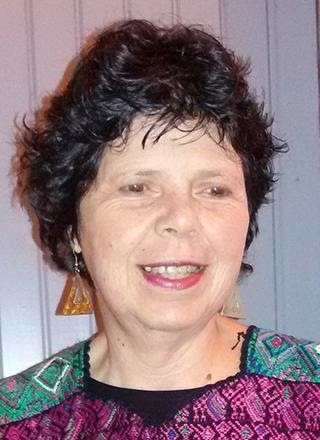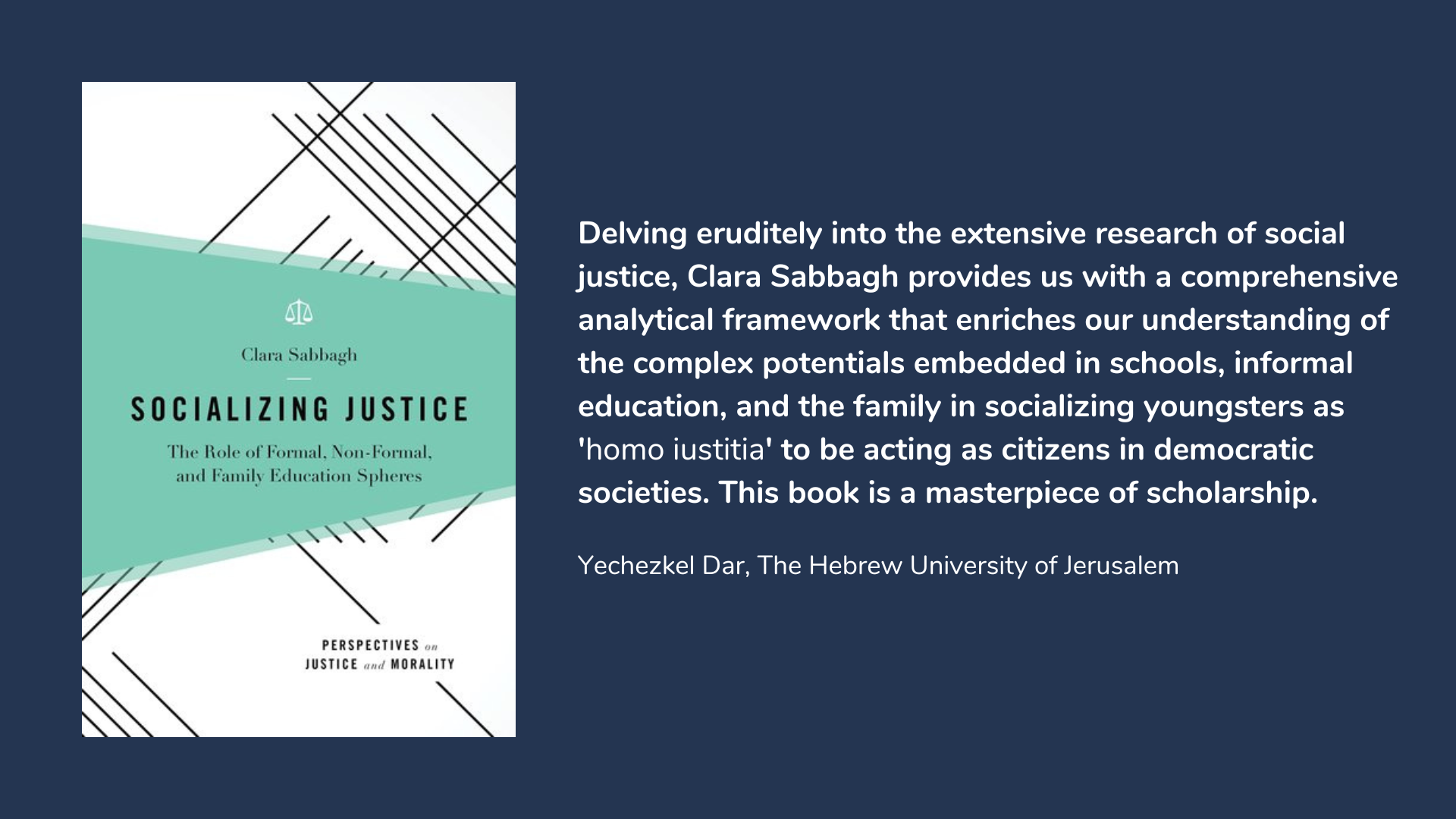Socializing Justice
The Role of Formal, Non-Formal, and Family Education Spheres
Professor Clara Sabbagh
Socializing Justice: The Role of Formal, Non-Formal, and Family Education Spheres offers a comprehensive view of the numerous roles of justice in three education spheres - public and globalized schools, nonformal education, and the family. It develops a heuristic framework for taking account of issues related to distributive justice in the everyday lives of children and young people and to the pillars of justice in various socialization settings, also examining justice research as it intersects with sociology of education, social psychology, and political philosophy. It relies on the quantitative and ethnographic methodological traditions in these fields to identify controversies and illustrate how the forms of justice underlying educational spheres are universal yet sensitive to sociocultural variation.
Socializing Justice is a thoughtful investigation into justice theory and research in schools, nonformal education systems, family units and the roles each play in developing social ideals in democratic societies. This excellent book:
- Examines the justice perspectives of children, young people, and purveyors of distributive justice, such as policymakers, teachers, and parents
- Demonstrates how family, formal, and nonformal education systems help align children's conduct with competing, yet coexisting justice ideals in democratic societies
- Develops a heuristic framework for an interdisciplinary account of issues related to distributive justice in the everyday lives of children and young people
"In this book, Clara Sabbagh aims to provide a close description of young people's experience of justice and injustice in the course of their education-and of the agencies and practices, just and unjust, that shape that experience. She does this in exemplary fashion, giving her readers a truly exhaustive account of the existing academic literature and adding to it her own carefully worked out and insightful views on what justice means in different educational contexts and, most important in my view, of the conditions that make for injustice." (Michael Walzer, Institute for Advanced Study Princeton, New Jersey)
Socializing Justice is available to buy from your local bookseller and online internationally from Amazon.
About The Author

Professor Clara Sabbagh (B.A., M.A., Ph.D. Hebrew University of Jerusalem) was born and raised in Guatemala and has been living and working in Israel since 1972. A sociologist of education by training, she chaired the Department of Leadership & Policy in Education (Programme for Education, Culture and Society) at the University of Haifa. She also served as President of the International Society for Justice Research, thus becoming internationally acknowledged as a justice scholar. Her enduring commitment to ISJR is expressed in the publication of a Handbook of Social Justice Theory and Research in 2016, which she edited jointly with Manfred Schmitt. This collection comprises work of leading justice scholars in the group. Later, she served as President of the Social Psychology Section of the International Sociological Association.
At the heart of Professor Sabbagh's work lies an ongoing inquiry into key aspects of conceptions of social justice that underlie the basic structure of society. Much of her scientific activity focuses on young people's evaluations of the ways different kinds of resources are and should be distributed in society. Her research on this topic is constituted by four main areas: First, she has developed a theoretical framework that accommodates both etic (structural) and emic (culture-bound) approaches to social justice judgments. Second, her work investigates the ways in which social justice judgments are related to conceptions of other key societal issues such as social welfare, environmentalism and relationships between generations. Third, she explores how social justice judgments are expressed in various social spheres, especially in the realm of education and the family. Finally, her work delves into patterns of continuity and change of social justice judgments in the Israeli society.
Professor Sabbagh's work has appeared in journals such as Social Psychology Quarterly, Social Justice Research, Journal of Social Policy, Acta Sociologica, Journal of Cross-Cultural Psychology, Family Process, Social Psychology of Education, and Globalisation, Societies, and Education, and other edited volumes. Currently, she is developing a fine-grained conceptualization of family justice climate as a group-level phenomenon. Such approach takes into account the views of multiple family members and delves into a wide range of research questions on familial justice and injustice and its association to inward and outward family roles (e.g., welfare and prosocial behavior).You can learn more about the influential work of Professor Sabbagh by visiting her website: csabbagh.edu.haifa.ac.il





